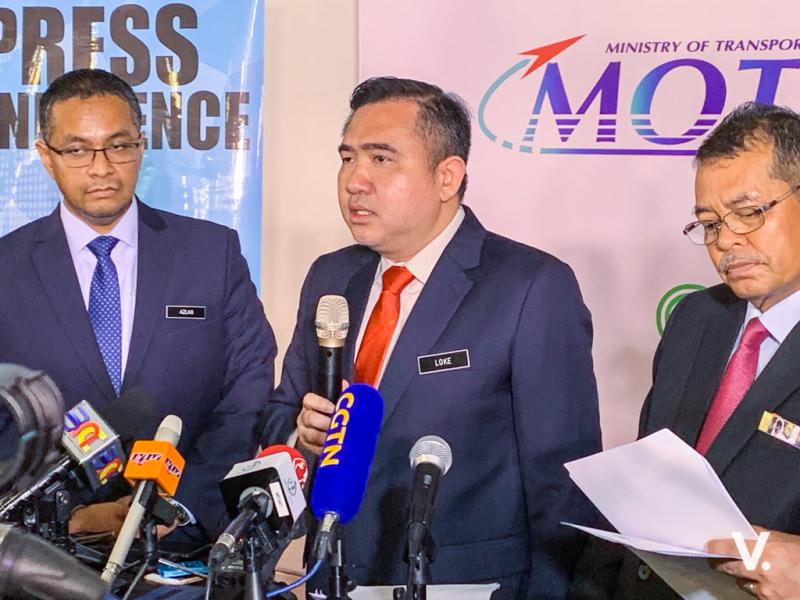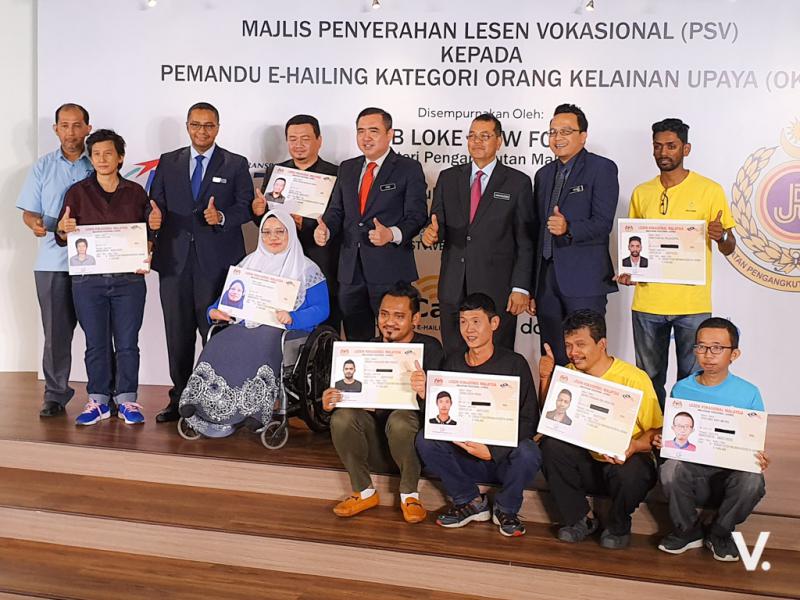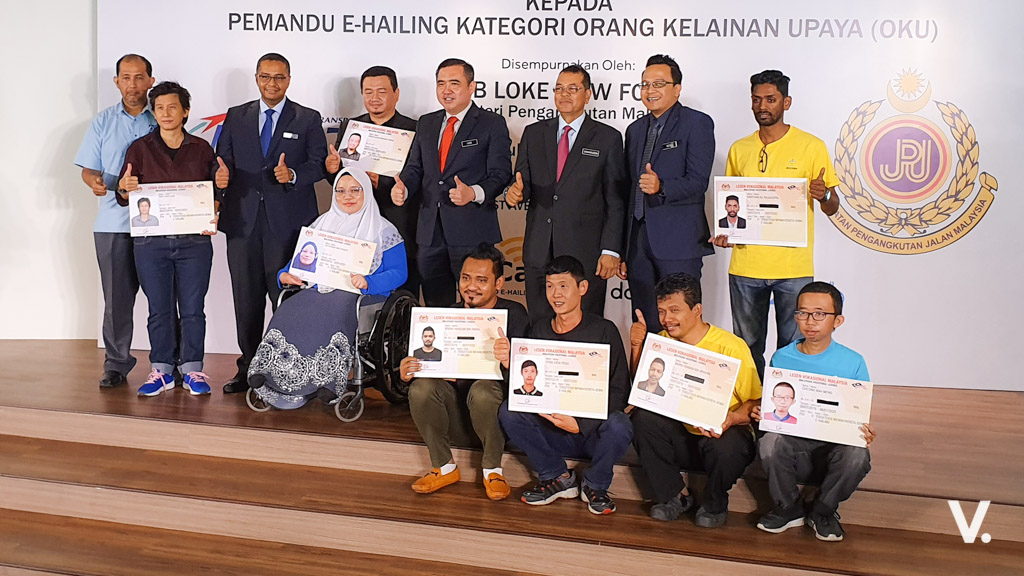At a special ceremony hosted at the Grab Malaysia HQ, Petaling Jaya on Tuesday, Minister of Transport Anthony Loke presented Public Service Licenses (PSV) to specially-abled (OKU) e-hailing drivers.
“Our [the government] principle is simple: If you’re willing to be self-reliant, the government will strive to help you to continue to be self-reliant. And we treat OKU drivers the same as regular drivers. That’s the spirit behind this occasion today.”
“I respect you–despite the many challenges you face in life, you work hard to be self-reliant like abled people. This is the spirit we should all take as an example. We are grateful to all of you.”
“You are a role model to society,” said Loke.

Last month, in collaboration with the Land Transport Agency (APAD) and Ministry of Health (MOH), the Road Transport Department (JPJ) introduced a special programme for OKU e-hailing drivers to obtain PSV licenses. The programme kicked off on the 18 June and ran until 27 June 2019.
There are currently 367 OKU drivers registered with e-hailing operators (EOH) such as Grab, MyCar, Dacsee and EZcab.
The MYR320 PSV license fee is waived for OKU drivers, a cost absorbed by operators.
The OKU drivers need to undergo a health screening process at Cheras Rehabilitation Hospital, and take an online digital training for up to six hours based on the JPJ set module. This can be done via the EHO without physical attendance at the driving training centre. The subsequent process is a one-hour, 60-question PSV written test that was held on 1 July 2019.
“I’d like to congratulate all of you for weathering the challenges of the process and subsequently obtaining the vocational PSV license,” said the minister.

It was revealed that out of 245 OKU applicants, 209 were successful. Loke announced that six of the applicants recorded outstanding results– five scoring 98 percent, while one applicant scored a full 100 percent. The 36 who failed can choose to re-sit for the written exam.
“I only scored 82 percent in the same test,” joked the minister. To acknowledge the outstanding achievements, the minister presented a special certificate prepared by the JPJ to the six individuals.
Loke added, “If specially-abled people can successfully obtain PSV licenses, there’s no excuse for able-bodied people to not be successful, if they put in time and focus on the tasks.”
“Please remember that you are ambassadors, not just drivers, to the transport ministry. You are contributors to the transportation industry. Continue to work hard and give your best services to your passengers,” said the minister in his opening speech.

Not entirely smooth sailing
After the announcement of the special programme for OKU drivers in June, a group of OKU drivers came forward to demand for equality in regulations for e-hailing services.
Some drivers complained that they had to go to additional medical check-ups at the Cheras Rehabilitation Hospital despite already owning OKU cards.
Some were subject to second and third medical and hearing tests. Additional, OKU drivers questioned the need to purchase new hearing aids, which were not useful for those born with full hearing disabilities.
To add salt to the wound, OKU drivers regardless of where they’re located, could only do medical check-ups at the Cheras Hospital–an inconvenience and financial burden.
Additionally, the written exam was held only for one day on 1 July, not allowing for any flexibility.
PSV license: The move to regulate
Announced by the MoT last November, the vocational PSV license is a move to regulate and legalise the e-hailing industry. Although mandated last year, the PSV license application process only kicked off in April this year.
Out of over 200,000 estimated e-hailing drivers in the country, only 10 percent of drivers have obtained the PSV license. As of 2 July, around 62 per cent of applicants between April and June have obtained the licence. Out of 16,638 applicants who sat for the licence application theory test, 10,151 passed the test.
I had posed a question to the minister about the influx of driver applicants seeing that the deadline is near and if the system could cope with demand; and if there was a possibility of a deadline extension. Loke said that drivers can still go through the PSV license process after the deadline. He will table the outcome of the policy (PSV license) to the Cabinet this Friday.
With 12 July looming, speculations are rife about price hikes on rides and longer wait times. When quizzed, Loke said the government has no plans to regulate fares of e-hailing services.
“These are all speculations, we have not come to regulating the fares but of course we are looking at the various development in other countries. We would always look at the development and changes around us, we would formulate our policy and make necessary changes from time to time,” he said.








